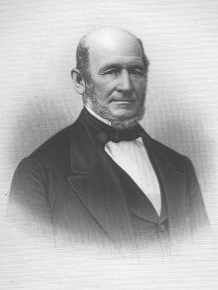A Quote by George MacDonald
The miracles of Jesus were the ordinary works of his Father, wrought small and swift that we might take them in.
Related Quotes
Our Lord's miracles were all essential parts of His one consistent life. They were wrought as evidences not only of His power, but of His mercy. They were throughout moral in their character, and spiritual in the ends contemplated by them. They were in fact embodiments of His whole character; exemplars of His whole teaching, emblems of His whole mission.
We modern people think of miracles as the suspension of the natural order, but Jesus meant them to be the restoration of the natural order. The Bible tells us that God did not originally make the world to have disease, hunger, and death in it. Jesus has come to redeem where it is wrong and heal the world where it is broken. His miracles are not just proofs that he has power but also wonderful foretastes of what he is going to do with that power. Jesus' miracles are not just a challenge to our minds, but a promise to our hearts, that the world we all want is coming.
The miracles of Jesus are signs of the right order of things. Jesus was not so much turning things upside down as turning them rightside up or, at least, giving his followers glimpses of the rightside up. The miracles of healing, deliverance, provision, and resurrection all reveal that God, through Jesus, is making all things new, that he is restoring what once was unbroken.
Great things are wrought through simple and small things. Like the small flecks of gold that accumulate over time into a large treasure, our small and simple acts of kindness and service will accumulate into a life filled with love for Heavenly Father, devotion to the work of the Lord Jesus Christ, and a sense of peace and joy each time we reach out to one another.
But what had lasting significance were not the miracles themselves but Jesus' love. Jesus raised his friend Lazarus from the dead, and a few years later, Lazarus died again. Jesus healed the sick, but eventually caught some other disease. He fed the ten thousands, and the next day they were hungry again. But we remember his love. It wasn't that Jesus healed a leper but that he touched a leper, because no one touched lepers.
... In relation to the way in which I look upon the works of God and his creatures, I will say that I was naturally begotten; so was my father, and also my Saviour Jesus Christ. According to the Scriptures, he is the first begotten of his father in the flesh, and there was noting unnatural about it.
The face of the Son of God, who, instead of accepting the sacrifice of one of his creatures to satisfy his justice or support his dignity, gave himself utterly unto them, and therein to the Father by doing his lovely will; who suffered unto the death, not that men might not suffer, but that their suffering might be like his, and lead them up to his perfection.
The making of miracles to edification was as ardently admired by pious Victorians as it was sternly discouraged by Jesus of Nazareth. Not that the Victorians were unique in this respect. Modern writers also indulge in edifying miracles though they generally prefer to use them to procure unhappy endings, by which piece of thaumaturgy they win the title of realists.





































